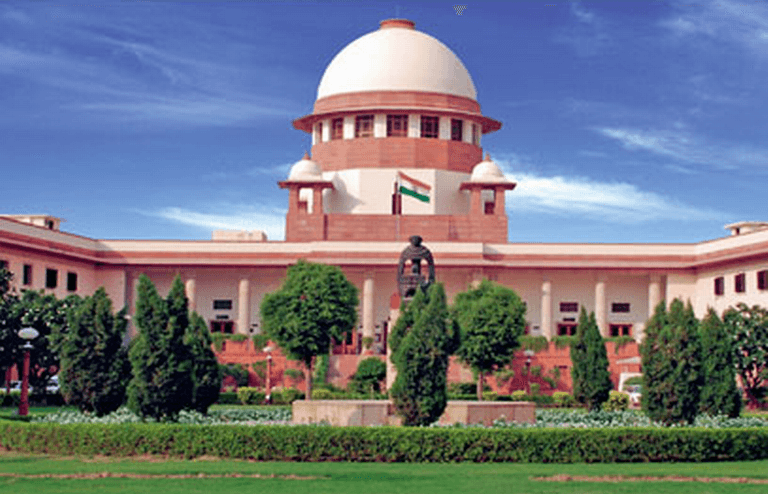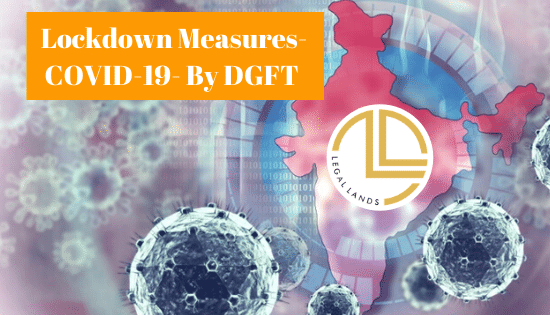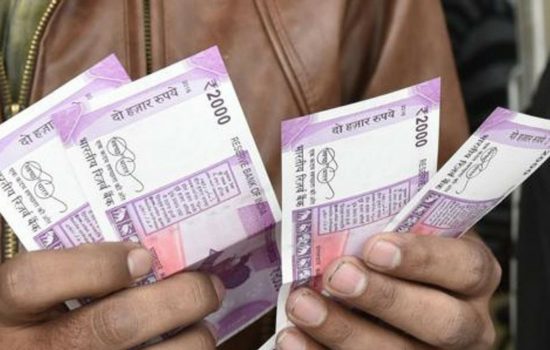Seldom have we come across a phase when we could watch Hon’ble Supreme Court of India being so ultra-active in shaping the future of India. Well, the month of September, 2018 was undoubtedly such a phase when the country witnessed the Supreme Court giving four landmark judgments back to back that has presented the country with such momentum to liberalize itself from the clutches of obsolete colonial laws and unfounded practices being obstacles in the path of reformation of Indian society.The bird’s-eye view of all the four landmark judgments have been discussed below:-
1. Justice K.S. Puttaswamy and Others v. Union of India and Others (The Aadhaar Judgment)
In this case, the petitioners had challenged the validity of Aadhaar Act, 2016 terming it to be a weapon with which the government of India can invade into the privacy of its citizens in the garb of national security, provision of welfare schemes and other various services. With the ‘Right of Privacy’ being upheldas a fundamental right unanimously by a nine judge bench in 2017, this case became an issue of paramount importance for the country affecting the population of country. Since the implementation of Aadhaar, 122 crore Aadhaar Numbers have been registered which is a major achievement for the government as well as the people of India. Such a huge investment of time and money was at stake.Considering the arguments and submissions presented, the Supreme Court with 4-1 majority upheld the constitutional status of the Aadhaar Act, 2016 with few controversial provisions being declared as unconstitutional.
The apex court disallowed the banks, and private companies such as telecom companies to collect Aadhaar details of customers. Similarly, for school admissions or purposes related to CBSE, NEET or UGC Aadhaar is not required giving a huge relief to the citizens. However, for the purpose of availing social welfare schemes and for filing IT returns, linking of Aadhaar is compulsory.
The judgment was hailed by the government, opposition and citizens as was in consonance of the fact that unnecessary intervention into the lives of people of India in the backdrop of security reasons or welfare objectives of government was an unduly exercise.
2. Joseph Shine v. Union of India, (The Adultery Case)
In this case, the petitioner had challenged the constitutional validity of Section 497 of Indian Penal Code, 1860 which states “Whoever has sexual intercourse with a person who is and whom he knows or has reason to believe to be the wife of another man, without the consent or connivance of that man, such sexual intercourse not amounting to the offence of rape, is guilty of the offence of adultery, and shall be punished with imprisonment of either description for a term which may extend to five years, or with fine, or with both. In such case the wife shall not be punishable as an abettor.”
In a simple view, if a person knowingly engages into a sexual intercourse with a married woman without the consent of such woman’s husband, then he shall be guilty of the offence of adultery punishable with imprisonment upto five years or with fine or with both. Such a colonial and obsolete penal provision clapped the personal choices of relationship by the human beings in iron which remained in existence for more than 150 years until the Supreme Court of India declared the provision as unconstitutional.
The apex court held that the offence of Adultery treated wife as a chattel of the husband and hence, attracted the violation of Fundamental Rights contained in the Article 14 and 21 of the Constitution. This is evident so because in case of commission of the offence of Adultery, only the husband of the wife was entitled to file FIR against the Adulterer. On the contrary, if in case a married man (Adulterer) engages into sexual intercourse with another married woman, then the wife of the adulterer could not invoke Section 497 against her husband because according to Lord Macaulay, framer of Indian Penal Code, 1860 such an offence is only against the husband of wife. Such unequal treatment towards women created a divide in the society and invited the wrath of constitution.
However, it has been reserved that the Adultery shall continue to be a valid ground for divorce. Also, now that per se adultery is not a crime, however if any aggrieved spouse commits suicide because of life partner’s adulterous relation, then if evidence produced, it would be punishable as Abetment to Suicide.
3. Navtej Singh Johar and others v. Union of India, (The Section 377 Judgment)
In this case, the petitioners belonged to the LGBT (Lesbian, Gay, Bisexual and Transgender) Community and challenged the constitutional validity of Section 377 of Indian Penal Code, 1860. The whole controversy in respect of constitutionality of Section 377 dates back to the year 2009 in which the Delhi High Court, in the case of Suresh Kumar Kaushal v. Naz Foundation,declared certain portions of section 377 of Indian Penal Code, 1860 as unconstitutional, however, In 2013, the Hon’ble Supreme Court overturned the judgment of Delhi High Court thereby reinforcing the complete Section 377 as was before.
In the year 2016, the Naz Foundation and others (Respondents) filed the curative petition in the Supreme Court seeking cure of the judgment of 2013 to which a three member bench agreed to refer it to a constitutional bench. Finally, in the year 2018, the Supreme Court in the case of Navtej Singh Johar v. Union of India, decided to reconsider its decision in Naz Foundation, 2013 case, and in the month of September 2018, the Supreme Court bench unanimously declared certain portions of Section 377 as unconstitutional. The erstwhile Section 377 of Indian Penal Code, 1860 states
“Whoever voluntarily has carnal intercourse against the order of nature with any man, woman or animal, shall be punished with imprisonment for life, or with imprisonment of either description for a term which may extend to ten years, and shall also be liable to fine.
Explanation-Penetration is sufficient to constitute the carnal intercourse necessary to the offence described in this section.”
It must be noted that only certain portions of Section 377 have been deleted pertaining to consensual homosexual sex between adults which implies that ‘sex with minors’, ‘non-consensual sexual acts’, and ‘bestiality’ are still punishable acts under the purview of Section 377 of Indian Penal Code, 1860.
Nevertheless, the Supreme Court’s landmark judgment is a cause of celebration for the LGBT Community whose untiring efforts turned the shape of India in a global sphere giving its citizens to have undisturbed right to enjoy their respective sexual orientations without any fear of an adverse law which was dragging India backward in a race towards liberalism.
4. Indian Young Lawyers Association v. The State Of Kerala and Others, (The Sabarimala Temple Case)
In the case of Indian Young Lawyers Association v. The State Of Kerala and others, the petitioners had challenged the practice of not allowing the women of the age group 10–50 to worship at the famous Sabarimala Temple in Kerala. The Sabarimala Temple worships the Deity called Lord Ayyappa who is considered to be an eternal celibate, meaning someone who has abstained from marriage and sexual relations, typically for religious reasons. Banning the entry of women of age group 10-50 years due to their active menstrual status that may hinder with the eternal celibacy of Lord Ayyappa had been in practice since time immemorial until the Hon’ble Supreme Court of India declared such practice as against the Fundamental Right of citizens contained in Article 25 of the Constitution, and Rule 3(B) Of The Kerala Hindu Places Of Public Worship (Authorization Of Entry) Rules 1965.
The petitioners argued in this case that banning the entry of a section of women due to their active menstruation cycle is a form of Untouchability which is prohibited by Article 17 of the Constitution and the right of a religious denomination, i.e., Travancore Devaswom Board to manage its internal affairs under Article 26(b) has to be harmonized with women’s right to practice religion under Article 25(1) of the Constitution. It also brought to the notice of the court that ‘Right to worship’ is an integral part of citizen’s right to freedom of speech and expression as envisaged by Article 19(1)(a) of the Constitution. Moreover, the fundamental right of religious denomination to manage its internal affairs under Article 26(b) is not an unfettered right as it is subject to the limitations of public order, morality and health, and any sex-based discrimination founded on notions of impurity violates constitutional morality.
Read Also:- Our Practice Areas
Whereas, the respondents contended that the practice in question had been in existence for a very long time and hence, forms a core and essential part of religious faith which can be pursued as per the freedom granted by Article 25.
However, the court with a significant majority of 4-1, declared the practice of banning the entry of women aged 10-50 in the Sabarimala Temple as unconstitutional thereby acknowledging the fundamental rights of women. Alike Triple Talaq judgment in 2017, this ruling was again a big blow to the prevalent patriarchy in the society and a step towards attainment of liberalism and egalitarianism in Indian society.
Recently, India became sixth largest economy in the world surpassing France which is definitely a reason to be joyful however, the situation may not be same in terms of ranks to be decided on the basis of how liberal a country is. To cater to such situation and uplift the societal status of India, people of India and the Supreme Court played a pivotal role in last September which shall be remembered eternally.
Our Corporate Professional Team is ever willing to provide assistance on any issue concerning GST, Insolvency and Bankruptcy Law, Business Model Advisory in India and Abroad, Customs Law, Corporate & Commercial Advisory, IPRs. Secretarial Compliance, Agreement Drafting & Negotiations etc. you may write us on connect@lawyer.legallands.com,
Best Regards,
Corporate Professional Team





































